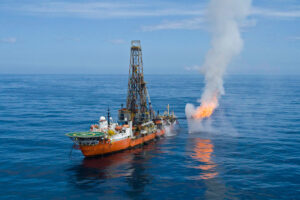By Sheldeen Joy Talavera, Reporter
THE upstream oil and gas industry pressed for the enhancement of the incentives regime to accelerate the exploitation of energy resources, the Philippine Petroleum Association (PPA) said.
“Ensure strong inter-agency cooperation, and comprehensive support to petroleum service contractors, so that exploration activities can be implemented speedily and efficiently,” PPA President Edgar Benedict C. Cutiongo said in an e-mail interview last week.
The upstream oil and gas industry deals with exploration and production.
Mr. Cutiongco said that the government should also “assure potential investors and participants on the clarity and stability of the fiscal terms” under the Philippine Conventional Energy Contracting Program.
One item the industry would like to stress is the retention of the fiscal incentives provided under Presidential Decree No. 87, otherwise known as The Oil Exploration and Development Act of 1972 and “if possible, to improve the incentives.”
Accelerating exploration activity will unlock the full potential of the country’s natural resources, according to Mr. Cutiongco, with the global demand for oil expected to increase over time, driven by economic and population growth.
“One of the countries that will see rising demand for oil is the Philippines, which relies heavily on imports to meet its domestic consumption,” he said.
The Philippines consumes 450,000 barrels of petroleum a day, mostly due to the transport sector, he said.
Citing the 2023 report from Fitch Solutions Risk and Industry Research, Mr. Cutiongco said that oil demand is projected to increase at an average annual rate of 3.4% between 2022 and 2031.
Net oil imports, on the other hand, will grow at around 3.5% over the same period.
“This means that the Philippines will need to import about 0.35 million barrels per day (mb/d) of oil by 2026, up from 0.27 mb/d in 2021. This will have implications for energy security, trade balance, and environmental sustainability,” he said.
The Philippines imported 3,476 million liters of crude oil during the first half of 2023, according to the Department of Energy (DoE). This was up 23.7% from 2022.
Mr. Cutiongco said the scope of Executive Order No. 60, which reorganizes the Philippine Gas Project into the Philippine Upstream Petroleum Task Force, “should be expanded to include all upstream service contracts” and not just to Malampaya Service Contract No. 38.
The DoE recently launched the first conventional energy bid round which offers pre-determined areas for potential exploration and development of various energy resources, including coal, petroleum, and native hydrogen.
